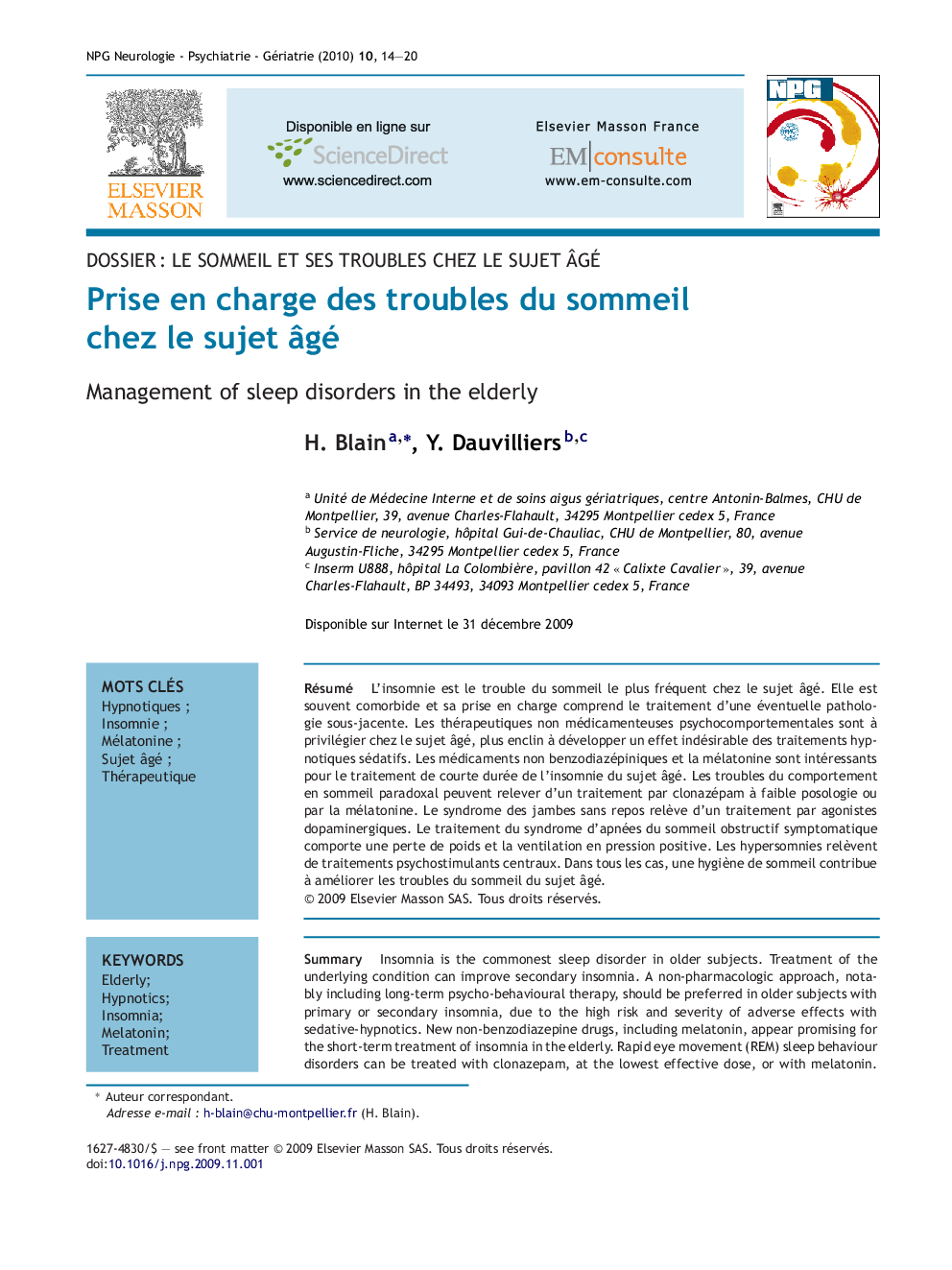| Article ID | Journal | Published Year | Pages | File Type |
|---|---|---|---|---|
| 3326475 | NPG Neurologie - Psychiatrie - Gériatrie | 2010 | 7 Pages |
Abstract
Insomnia is the commonest sleep disorder in older subjects. Treatment of the underlying condition can improve secondary insomnia. A non-pharmacologic approach, notably including long-term psycho-behavioural therapy, should be preferred in older subjects with primary or secondary insomnia, due to the high risk and severity of adverse effects with sedative-hypnotics. New non-benzodiazepine drugs, including melatonin, appear promising for the short-term treatment of insomnia in the elderly. Rapid eye movement (REM) sleep behaviour disorders can be treated with clonazepam, at the lowest effective dose, or with melatonin. Restless legs syndromes can be treated by dopamine agonists. Obstructive sleep apnea can be improved with the use of a continuous positive air-pressure device and dieting. Excessive daytime sleepiness can be treated with central stimulants. In all cases, sleep disorders can be improved by sleep hygiene and sleep education.
Keywords
Related Topics
Health Sciences
Medicine and Dentistry
Geriatrics and Gerontology
Authors
H. Blain, Y. Dauvilliers,
